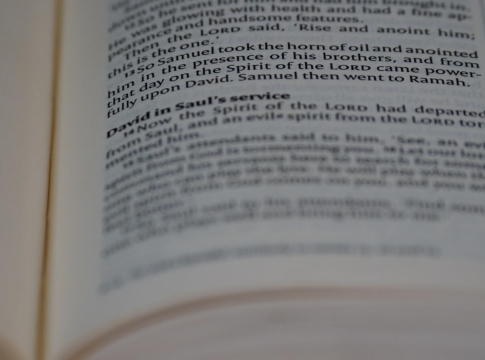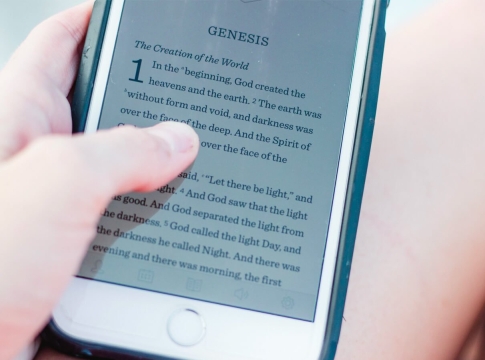
Jude’s letter is among the shortest books in the Bible. It is also among the most complex since it is jam-packed with allusions to tales from both the Bible and outside the Bible that the majority of readers today are unlikely to be familiar with. In an attempt to help you understand some of these problems and uncover the important lessons this letter holds, this essay attempts to provide you with a brief introduction.
Author
“Jude, a servant of Jesus Christ and brother of James,” is how the letter’s author introduces himself (Jude 1:1). Jude was [one of Jesus’ biological half-brothers], just like James. He was Joseph and Mary’s son. Both Matthew 13:55 and Mark 6:3 mention him. Jesus’ brothers did not first accept that He was the Son of God and the Messiah. However, upon His crucifixion and resurrection, they turned to faith and became followers of Jesus (Acts 1:14; 1 Corinthians 9:5). Jude declares that he accepts Jesus as his Lord by identifying himself as “a servant of Jesus Christ.”
Addressees
Jude doesn’t speak to any one local church body. According to Jude 1:1, he simply refers to his readers as “those who are called, beloved in God the Father and kept for [or “by”] Jesus Christ.” For a greater comprehension, the Easy English Bible breaks down this passage and puts it this way: “I am writing to you, people that God, the Father, loves.” You are God’s people, by his own design. He is ensuring your safety until the second coming of Jesus Christ. Verses 3 and 4 convey his sentimental attachment to these individuals by referring to them as “dear friends” or “beloved.”
Jude is most likely writing to Jews who followed Jesus Christ because of the numerous allusions to Jewish writings and the Old Testament.
Warning for false teachers
Jude responds to a pressing situation in her writing. Unnoticed by others, a few “ungodly people” attempt to mislead believers with their twisted doctrines and immoral lifestyle. They reject Jesus Christ’s authority as their Lord and Master. According to Jude 1:16, “these are boastful, ungrateful people who follow their own wicked desires; they are loud-mouthed complainers who show partiality to obtain an advantage.” Jude forewarns his readers to stay away from these individuals. He emphasizes his worries by citing a number of historical instances.
Historical examples applied to the false teachers
- The Israelites who did not believe in God after being saved from Egypt were annihilated (Psalm 78:1-33; 1 Corinthians 10:1-6; Hebrews 3:16-19).
- Angels that rebel are imprisoned indefinitely, until the day of God’s judgment. This could be a reference to [the account in Genesis 6:1-4] or to the initial fall of Satan and his demons.
- Fire killed the people who lived in Sodom and Gomorrah as a result of their egregiously immoral actions. The narrative is found in Genesis 18–19.
Jude 1–8 states that because the false professors who entered the church behaved similarly, they will likewise be subject to God’s wrath.
- When disputing the body of Moses, even Michael, the captain of God’s angels, refrained from passing a blasphemous judgment on the devil, trusting instead to God to make the final decision (Jude 1:9). This might allude to a non-biblical source that is no longer accessible, like “The Testament of Moses.” Only a little background is available to us in Deuteronomy 34:5–6.
The impostor teachers behave differently. Jude 1:8 states that they “blaspheme the glorious ones,” and Jude 1:10 states that they “blaspheme all that they do not understand.” Instead of submitting to Jesus’ authority, they assert their own authority.
Jude now gives several instances of people who rebelled against God because they were unhappy with what they had been given.
- Cain in Genesis 4:5-11
- Balaam in Numbers 22-24; Joshua 13:22 and 2 Peter 2:15
- Korah in Numbers 16:1-33
In all three cases, the story ended tragically. These folks are similar to the false professors, who will likewise incur God’s wrath.
Jude concludes by quoting an old prophecy made by Enoch. Hebrews 11:5 and Genesis 5:18–24 both make reference to this man. His prophecy is found in 1 Henoch, an old Hebrew book, rather than in the Bible. Jude quotes 1 Henoch 1:9 and applies it to the false teachers: “Behold, the Lord comes with ten thousands of his holy ones, to execute judgment on all and to convict all the ungodly of all their deeds of ungodliness that they have committed in such an ungodly way, and of all the harsh things that ungodly sinners have spoken against him.” This was also Enoch’s prophecy. He was the seventh from Adam. Jude 1:14–15
Jude makes a compelling case in detail for his readers, urging them to cling to “the faith that was once for all delivered to the saints” rather than following these people (Jude 1:3). It is extremely risky to stray from the truth that God has made known to us in doctrine or in daily life!
Encouragement and doxology
Jude reminds us that the emergence of fraudulent instructors is not unexpected as he ends his letter. The apostles had already prophesied this. Jude 1:20–21 states that he prays in the Holy Spirit, builds up his readers’ faith, and keeps them in God’s love as they wait for the mercy of our Lord Jesus Christ, which leads to eternal life. Jude 1:1 states that believers should “keep themselves in the love of God” because they are “beloved in God the Father and kept by Jesus Christ.” This admonition ties back to the letter’s opening.
“Now to Him who is able to keep you from stumbling and to present you blameless before the presence of His glory with great joy, to the only God, our Savior, through Jesus Christ our Lord, be glory, majesty, dominion, and authority, before all time and now and forever. Amen,” is a doxology found at the very end of Jude’s letter. I would like to quote it in its entirety. Jude 1:24–25.





